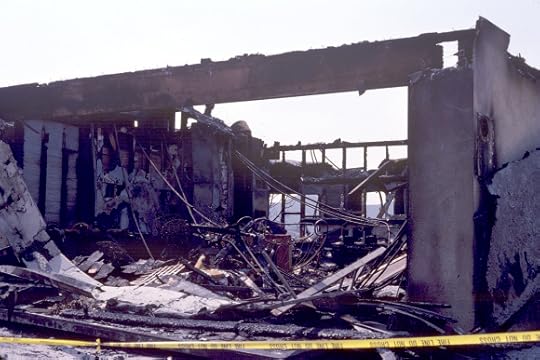Firefighters Who Commit Arson
Rachel Munroe investigates why they do it:
If the problem were that pyromaniacs were infiltrating our fire departments, that would be one thing. We would just need some way to identify them and weed them out – or, better yet, stop them from signing on in the first place, perhaps with some sort of complicated personality test – then the problem would be solved. But the truth is much more complicated than that. Most firefighter-arsonists have never even considered setting fires before they joined up. The idea comes later, after a few months or years of service. In other words, it’s not the evil arsonists who are ruining our fire departments; it’s our fire departments that are igniting something destructive in our firefighters.
For many years, most anyone who set fires for non-murderous or -financial reasons was, by definition, a pyromaniac. In 1951, Lewis and Yarnell published the first major, large-scale study on firesetters. Their overall conclusion, written in a tone of dripping, not-particularly-academic disdain, was that arsonists were fundamentally weak people who set fires to make themselves feel powerful:
“A craving to be the center of the stage and the recipient of public acclaim, even for once, is within the soul of every person – the smaller the man, the more he secretly wishes such type of recognition.” Firefighter-arsonists got an extra dose of contempt; they were “little men with grandiose social ambitions whose natural equipment dooms them to insignificance.” This characterization jibed nicely with Freud’s idea that the arsonist has childish fantasies of peeing on a fire to extinguish it – the drama of the fireman writ small and pathetic.
But even if pyromania is a real psychological problem – and in recent years, that’s been up for debate – it doesn’t help to explain why a significant number of firefighter arsonists are not “little men” or pathetic losers who want to wreak havoc on a society that’s rejected them, but rather overachievers, team players, firefighter-of-the-year types. The kind of guys who post firefighter memes to Facebook all day. “When a man becomes a fireman his greatest act of bravery has been accomplished. What he does after that is all in the line of work. Firemen never die, they just burn forever in the hearts of the people whose lives they saved,” Trent Bonner, his department’s top responder, posted on Facebook in 2011. A few days earlier, he’d helped put out a fire that he’d set himself.
They set fires to bone up on their training, or to preemptively eliminate hazardous buildings; they are, in the words of fire scholar Matt Hinds-Aldrich, “occupationally overzealous.” “We found that a lot of these young men didn’t have an awful lot in their lives to distinguish them except for their association with the fire service,” said Ken Cabe, who studied firefighter arsonists for the South Carolina State Forestry Commission. “They were highly motivated, they were highly trained and maybe the alarm didn’t go off often enough for them.”
In other words, a firefighter who sets fires may not be some entirely separate and deviant kind of person, but rather a good guy who goes to extremes.
(Photo: A California home destroyed in a blaze set by the notorious fire captain John Orr in 1990.)



Andrew Sullivan's Blog
- Andrew Sullivan's profile
- 154 followers




